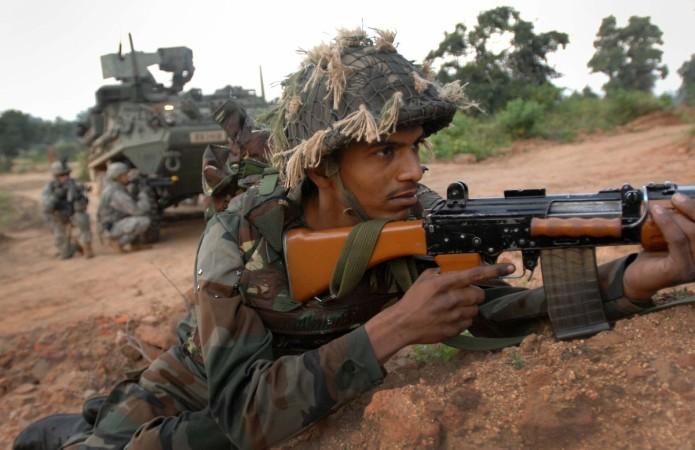![[Representational image] Amarnath yatra, Amarnath pilgrims](https://data1.ibtimes.co.in/en/full/654714/amarnath-yatra-amarnath-pilgrims.jpg?h=450&l=50&t=40)
The killing of seven Hindu pilgrims in southern Kashmir en route from the holy cave of Amarnath is the latest bloody statistic in Jammu and Kashmir, which has witnessed a 45 per cent rise in terrorism-related deaths — and a 164 percent increase in civilian deaths alone — over the year ending June 30, according to an analysis of data from the South Asian Terrorism Portal (SATP).
Unidentified terrorists reportedly opened fire on a police vehicle at around 8 pm on July 10. When police retaliated, the terrorists fired indiscriminately, and a bus full of pilgrims returning from Amarnath was caught in the crossfire, according to the police. The Kashmir Police blamed terror group Laskhar-e-Taiba (LeT) for the attack.
Over the past 18 years, at least 52 Amarnath pilgrims have been killed in five terrorist attacks. The deadliest attack was mounted by LeT terrorists on August 1, 2000. That attack left 21 pilgrims dead in Pahalgam.
The latest attack came hours after a curfew and social-media ban was lifted in the Kashmir Valley after restrictions were imposed in anticipation of a possible attack to mark the death anniversary of Hizbul Mujahideen's Burhan Wani.
Wani was gunned down by security forces a little over a year ago on July 8, 2016. What followed were violent protests, several months of curfew and an overall deterioration in Jammu and Kashmir's security situation.
The number of security personnel killed in terrorist violence has nearly doubled from 51 in the year preceding Wani's death to 98 in the following year, according to an analysis of data compiled by the SATP.
The SATP compiles data on fatalities due to terrorism from media reports. The data are provisional and compiled as on July 10.
The 45 percent increase in deaths of civilians, security personnel and terrorists from 216 in 2015-16 to 313 in 2016-17 is the highest year-on-year percentage increase over the past five years.
Civilian deaths have increased 164 percent, as we said, from 14 in 2015-16 to 37 in 2016-17, while terrorist deaths have risen 18 percent during this period to 178 in 2016-17.
There has been a 42 percent increase in terrorism-related deaths in Jammu and Kashmir since the Narendra Modi-led Bharatiya Janata Party (BJP) came to power in May 2014, compared with the last three years of the second term of the Congress-led United Progressive Alliance (UPA-II), IndiaSpend reported on May 27, 2017.
In the last three years, India has had several successes against terrorism — both on the security and diplomatic front.

On May 27 this year, Wani's successor Sabzar Bhat was killed in an anti-terrorist operation by security forces.
On June 27, the United States designated Hizbul Mujahideen chief Syed Salahuddin a "global terrorist", ahead of Narendra Modi's meeting with US President Donald Trump in Washington, DC.
Salahuddin also leads the United Jihad Council, an umbrella organisation for anti-India terrorist organisations such as Lashkar-e-Taiba and Jaish-e-Mohammed, known to operate out of Pakistan-occupied Kashmir.
Salahuddin has openly admitted to carrying out attacks against India, including on an Indian Air Force base in Pathankot, Punjab, on January 2, 2016.









!['Had denied Housefull franchise as they wanted me to wear a bikini': Tia Bajpai on turning down bold scripts [Exclusive]](https://data1.ibtimes.co.in/en/full/806605/had-denied-housefull-franchise-they-wanted-me-wear-bikini-tia-bajpai-turning-down-bold.png?w=220&h=138)



